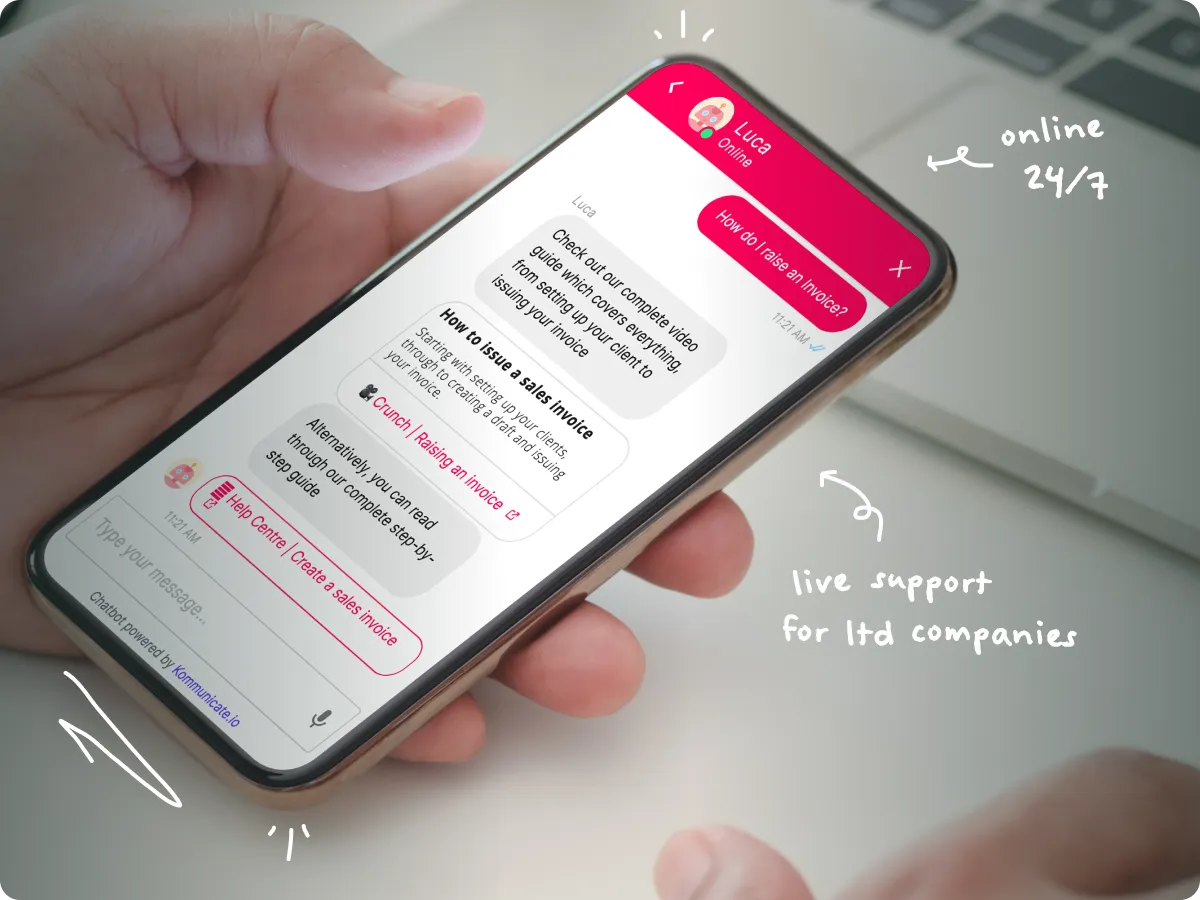The 2023/24 tax year begins on 6th April 2023. We’ve put this article together to highlight the main changes and other tax matters affecting individuals and businesses. We also have an article to help individuals and businesses get ready for the end of the tax year.
We’ve got a separate article that contains all the tax rates, thresholds and allowances for 2022/23 and 2023/24 .
Personal Tax, thresholds and allowances
The Personal Allowance (the amount you can earn before paying any Income Tax) remains at £12,570 for the 2022/23 and 2023/24 tax years. The threshold for paying the Higher Rate of income tax (which is 40%) remains at £50,270. Both of these thresholds are frozen until 2026.
Tax rates and thresholds for the UK (excluding Scotland)
There have been changes to thresholds in the UK and also different changes for Scotland:
1 There are different Income Tax rates for Scottish residents
Scottish Income Tax Rates and Tax Thresholds
The Scottish Government operates a different income tax regime compared to the rest of the UK, with a lower starter rate and more tax bands and tax thresholds.
The above tables assume the individual is receiving the Personal Allowance for tax-free income of £12,570 in the 2022/23 and 2023/24 tax years.The Personal Allowance is reduced by £1 for every £2 earned over £100,000. This is the same across the UK. There’s more background to the Scottish Income Tax rates and how to see if you’re classed as a Scottish taxpayer in our ‘Scottish Income Tax Rates and how to check if it applies to you’ knowledge article.
Impact on director tax-efficient salary recommendations
To maximise your tax efficiency as a single company Director and Shareholder in the 2023/24 tax year, we usually recommend your company should pay you a salary of £9,100 and dividends of up to £41,170.
This allows you to use all of the basic rate band of tax, where you pay tax at 20%, and assumes you have no other income. Your total personal tax bill would then be £3,211.25, on take-home pay of £47,058.75.
If you take more income in dividends you will pay tax on these at a rate of 33.75% as a higher rate taxpayer. Our Crunch Personal Tax Estimator can help you get a more personalised calculation.
We have further information on how much to pay yourself as salary from your limited company. If you have any questions about how these amounts have been calculated, or you’d like your limited company to pay you more in salary, then you should speak to an accountant for tailored advice. If you don’t have an accountant or are looking to switch, give our friendly team a call on <responsetap number> or arrange a free consultation.
Dividend Allowance
The Tax-Free Dividend Allowance for the 2023/24 tax year is £1,000 (£2,000 for the 2022/23 tax year). Dividend tax rates increased by 1.25% for the 2022/23 tax year, and maintained for the 2023/24 tax year, as shown below.
The rate of tax to be paid on overdrawn Directors Loan Accounts under s455 of the Corporation Tax Act 2010 is the dividend Higher Rate. From April 2022, the s455 rate increased to 33.75%.
You can find out more about dividends and what tax you pay in our Knowledge article.
National Minimum Wage and National Living Wage
Whilst not strictly a tax year change, National Minimum Wage and National Living Wage amounts increase to £10.42 per hour from 1st April 2023 for workers aged 23 years and over.
The National Living Wage (for those aged 23 and over) and the National Minimum Wage (for those of at least school leaving age) increased from 1st April 2023 as follows.
Company cars
Fully electric cars are charged at 1% of their list price in the 2021/22 tax year, and increased to 2% in 2022/23 and remain the same for 2023/24.
The percentage applied to the list price of the car is based on the CO2 emissions published by the Vehicle Certification Agency. HMRC has published a ready reckoner you can use to calculate your company car tax.
Company vans and fuel benefit for company cars
When your company pays for fuel you have used personally or allows personal use of a company van, it is a benefit kind (BiK). These fuel benefit charges only apply if fuel is provided for personal use.
The tax paid on such benefits is being increased from 6th April 2023. The BiK is a fixed amount for vans and the changes are as follows for directors and employees:
- The BiK on company vans increases to £3,960 (from £3,600)
- The BiK on fuel for a van provided for personal use increases to £757 (from £688).
This can be reduced if:
- you or your employee cannot use the van for 30 days in a row
- you or your employee pays you to privately use the van
- other employees use the van - divide £3,960 by the number of employees.
The fuel benefit calculation for cars is a little more complex.
A director/employee who is provided with a company car and also receives free fuel from his employer, is taxed on the cash equivalent value of the benefit each tax year. The cash equivalent amount is fixed each year and increases to £27,800 (from £25,300) on 6th April 2023.
The BiK charge is calculated by using an appropriate percentage, which is the same as the rate for company car benefit purposes (see above) and then multiplying by the fixed amount (£27,800 in 2023/24). So if the BiK percentage for your company car is 13%, your BiK amount on the fuel provided for personal use is £3,614 (13% of £27,800).
Student Loans
Student Loan Plan 1 and Plan 2 threshold increase and new Plan 4 repayments for Scottish Loans
The Department for Education has confirmed that from 6th April 2023 the earnings threshold before you start to repay a student loan for:
- Plan 1 loans increased to £22,015
- Plan 2 loans remains at £27,295
- Postgraduate loans remains at £21,000 (England & Wales) and £18,330 (Scotland & Northern Ireland)
- Plan 4 loans increased to £27,660.
If you’re a director being paid salary and dividends from your company, and you’re paying back a student loan, you must remember the threshold for repayment is based on your total income.
This will apply to all current and future student loans where employers make student loan deductions. So if you run a payroll for any employees who have student loan deductions, you need to ensure you have a record of what type of loan they have, so that the correct deductions are made.
We have an article explaining Student Loan repayments when you’re self employed.
Postgraduate Master’s Loan and Postgraduate Doctoral Loan
A Postgraduate Master’s Loan is a type of loan introduced by the government to help with course fees and living costs while you study a postgraduate master’s course. The repayment of your Postgraduate Loan is treated the same as any other Student Loan and interest is charged from the day you get the first payment. Repayment will be at 6% for students in England and Wales on income above £21,000. The rate is 9% for Scottish and Northern Irish students with income over £18,330 per year.
Other personal tax reliefs and allowances
Personal Savings
The band of savings income that is subject to the 0% starting tax rate remains at its current level of £5,000 for the 2023/23 tax year.
The adult ISA annual subscription limit for the 2023/24 tax year remains unchanged at £20,000.
The annual subscription limit for Junior ISAs and Child Trust Funds for the 2023/24 tax year is unchanged at £9,000.
Higher-income Child benefit charge threshold
Since January 2013, there has been a clawback charge on the higher earner of a couple where one claims Child Benefit and either has an income over £50,000. This has always been called the ‘High Income Child Benefit Charge’, but now for the first time, it appears that it can apply to a basic rate taxpayer, because there was no mention of a change to the £50,000 threshold, even though the Income Tax higher rate threshold did increase.
Personal pensions
The tax-free amount you can pay into a personal pension remains at £40,000 for the 2023/24 tax year. The lifetime allowance for pension savings remains at £1,073,100 and is frozen until 2026.
Capital Gains Tax
The Capital Gains Tax annual exempt amount for individuals has fallen to £6,000 from April 2023 (was £12,300 for 2022/23 tax year). It will fall again to £3,000 from April 2024.
Inheritance Tax
There is no change to the Inheritance Tax (IHT) nil rate band, the threshold remains at £325,000 and is frozen at that level until 2026.
Business Asset Disposal Relief
The Business Asset Disposal Relief lifetime allowance limit remains capped at £1 million.
Corporation Tax, workplace pensions and allowances
Corporation Tax
Corporation Tax payable on company profits remains at 19% for the 2023/24 tax year for those with profits below £50,000. The top rate will be 25% for those with profits in excess of £250,000. For those with profits between £50,000 and £250,000 a marginal percentage rate will be applied. Workplace pensions (auto-enrolment).
Workplace pensions (auto-enrolment)
There are no changes to the minimum amount you need to pay into your employee’s auto-enrolment workplace pension. This means the total amount of employer and employee contributions remains a minimum of 8% of your employee’s qualifying earnings.
Annual Investment Allowance (AIA)
The Annual Investment Allowance of £1 million has been made permanent.
Corporation Tax Relief (‘super deduction’) business investment tax relief and loss relief for businesses
The super-deduction tax relief allows 130 per cent first-year relief on qualifying main rate plant and machinery investments from 1st April 2021 until 31st March 2023 for limited companies.
The government allows trading losses up to £2 million to be carried back one year without restriction. For accounting periods ending between 1st April 2020 and 31st March 2022, this is extended to three years, with losses required to be set against profits of most recent years first before carry back to earlier years.
Need some help?
All of the above comments are for your information only. We always recommend speaking to an accountant for a more in-depth analysis of your circumstances. If you don't have an accountant or are looking to switch, give our friendly team a call on 01273 257165 or arrange a free consultation.
.svg)




%20(1).jpg)




